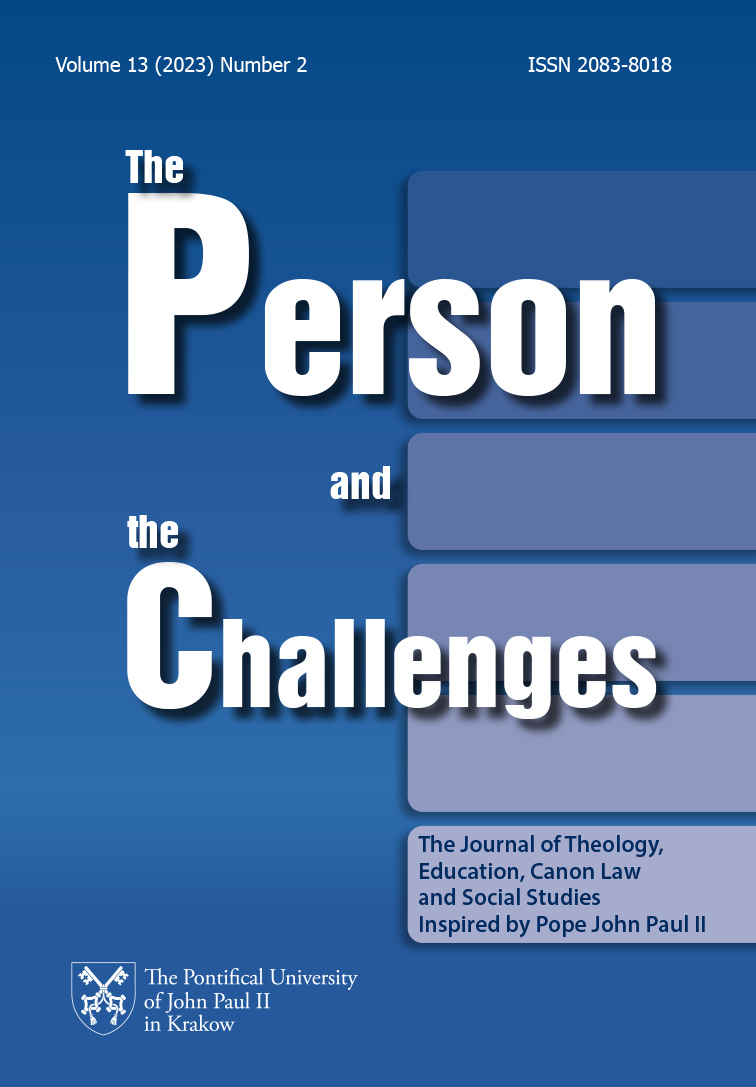Cardinal Stanislaw Nagy’s Ecumenical Ecclesiology
DOI:
https://doi.org/10.15633/pch.13209Słowa kluczowe:
Stanislaw Nagy, apologetics, fundamental theology, ecumenism, ecclesiologyAbstrakt
The systematic theology of the 20th and 21st centuries has experienced revolutionary changes. The tremendous effort of theologians – which was already evident on the eve of Vatican II to experience order and confirmation during its deliberations – is still bearing fruit today. It seems that interpretations of the Council’s teaching have now become more problematic than the doctrine of Vatican II itself.
One of the great figures of the theological world is Prof. Stanislaw Nagy, whose create efforts were honoured with a cardinalate, and to whom we are all indebted. Indeed, it is worth discovering his difficult path from the pre-council rigorous spiritual and intellectual formation to formal apologetics, thus paving the way for fundamental theology in Poland during the Communist period, to the ecumenical commitment of the times of freedom. In this respect, it is not without reason to speak of his ecumenical vision of the Church.
Bibliografia
lat teologii na KUL, eds. S. Nowosad, J. Mastej, Lublin 2018.
Bellarmin R., De controversiis christianae fidei, Liber III: De Ecclesia militante, c. 2.
Białkowski M., Polscy ojcowie Soboru Watykańskiego II. Wstęp do badań nad episkopatem Kościoła katolickiego w PRL w latach sześćdziesiątych XX wieku, “Nasza Przeszłość”, vol. 132 (2019), pp. 269–315.
Choromański A., Vaticanum II – Sobór eklezjologicznego przełomu, “Studia Theologica Varsaviensia” 2/2012, pp. 17–54 [pp. 1–38].
Congregation for the Doctrine of the Faith, Declaration Dominus Iesus, Vatican 2000.
Grzebień L., Radomski Bolesław, in: Słownik polskich teologów katolickich, Warszawa 1983, vol. 7, p. 13.
Kumorek A., Wiarygodność chrześcijaństwa w pismach kard. Stanisława Nagyego SCJ, Tarnów 2017.
Łukaszka R., Pięćdziesięciolecie teologii fundamentalnej na Katolickim Uniwersytecie Lubelskim 1918–1968, “Roczniki Teologiczno-Kanoniczne”, vol. 15 (1959), z. 2.
Napiórkowski A., Kościół i człowiek: tajemnica, wspólnota, misja, in: Kościół i człowiek, ed. A. Napiórkowski, Kraków 2021, pp. 227–251.
Napiórkowski A., Koncepcje Kościoła i ich wpływ na stan mariologii i maryjności, in: Kościół i Maryja, ed. A. Napiórkowski, Kraków 2020, pp. 305–327.
Napiórkowski A., Reinterpretacja integralnego powstawania i rozwoju Kościoła. Niektóre aspekty trynitarnej i antropologicznej eklezjogenezy, “Roczniki Teologiczne” 9 (2020), vol. 67, pp. 21–36.
Nagy S., Chrystus w Kościele, Wrocław 1982, TUM.
Nagy S., Kościół na drogach jedności, Wrocław 1985.
Rahner K., Geist in Welt: Zur Metaphysik der endlichen Erkenntnis bei Thomas von Aquin, Innsbruck 1939.
Rahner K., Hörer des Wortes. Zur Grundlegung einer Religionsphilosophie, München Kösel 1941.
Rusecki M., Recenzja dorobku naukowego (…), in: Kard. Prof. S. Nagy SCJ. Doktor honoris causa Papieskiego Wydziału Teologicznego we Wrocławiu, Wrocław 2009, pp. 23–34.
Sesbüé B., Theobald Ch., Słowo zbawienia. Historia dogmatów, Kraków 2003, vol. 4, pp. 385–399.
Seweryniak H., Recenzja dorobku naukowego (…), in: Kard. Prof. S. Nagy SCJ. Doktor honoris causa Papieskiego Wydziału Teologicznego we Wrocławiu, Wrocław 2009, pp. 35–58.
Pobrania
Opublikowane
Numer
Dział
Licencja

Utwór dostępny jest na licencji Creative Commons Uznanie autorstwa 4.0 Międzynarodowe.
Autorzy publikujący w czasopiśmie udzielają jego wydawcy zgody o następującej treści:
- Autor zachowuje autorskie prawa majątkowe do utworu, a jednocześnie udziela wydawcy czasopisma zgody na jego pierwszą publikację w wersji drukowanej i wersji online na licencji Creative Commons Uznanie autorstwa 4.0 Międzynarodowe oraz zgody na wykonywanie opracowań, w tym przekładów.
- Autor ma możliwość udzielania zgody niewyłącznej na opublikowanie utworu w wersji, która ukazała się w czasopiśmie (np. zamieszczenia go w repozytorium instytucjonalnym lub opublikowania w książce), wraz z informacją o jego pierwszej publikacji w czasopiśmie.
- Autor może umieścić swój utwór online (np. w repozytorium instytucjonalnym lub na swojej stronie internetowej) jeszcze przed zgłoszeniem utworu do czasopisma.

